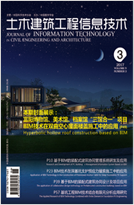Abstract:
With the increasing demands for innovation and the intensification of inter-organizational network cooperation and learning, achieving collaborative innovation performance has become increasingly intertwined with inter-organizational learning and collaboration. Drawing on the theory of absorptive capacity, the virtual collaboration platform enabled by BIM technology transforms face-to-face communication between project participants from being the sole mode to one that is supplemented by more real-time virtual collaboration. This study investigates the impact of relational learning among project participants on cooperative innovation performance, thereby facilitating continuous competitive advantage acquisition in geographically dispersed environments. Through an analysis of 330 survey datasets, the findings indicate that relational learning significantly enhances cooperative innovation performance. Moreover, the effectiveness of virtual collaboration partially mediates the relationship between relational learning and cooperative innovation performance. Additionally, BIM capability positively moderates the influence of relational learning on the effectiveness of virtual collaboration as well as the mediating effect of virtual collaboration effectiveness.










 下载:
下载: